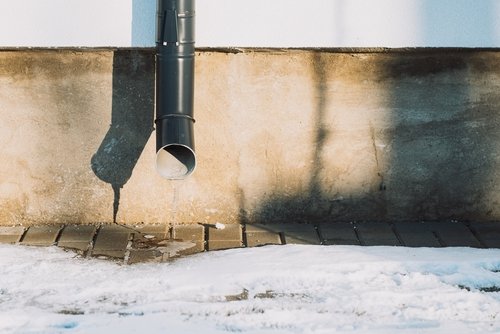Why tenants must check their commercial lease is watertight – the drip, drip effect of leaky paperwork
It started with a blocked downpipe and ended with damage so extensive a commercial tenant's ground floor tile shop was left unusable - yet the landlord was not liable for the downpipe's repair and maintenance, the High Court has decided.
This recent case illustrates the vital importance of making sure tenants have the terms of any commercial lease carefully checked by a solicitor regarding the landlord's repair and insurance obligations.
By doing so, a clause obligating the landlord to maintain and repair the building can be inserted and the tenant thus protected.
So, who was responsible for the leaking downpipe?
The answer is no-one! The tenant certainly wasn't liable for repairing the leaking downpipe but neither was the landlord.
In this case, Stonecrest Marble Ltd v Shepherds Bush Housing Association Ltd (2021), the tenant's tile shop was on the ground floor and the residential upper parts of the property remained under the Housing Association's control as retained parts.
As soon as water damage caused by the build-up of debris in the downpipe upstairs became apparent, Stonecrest Marble reported it to the landlord and continued to do so in the two years which followed.
However, under the terms of the lease, the landlord was not required to carry out any repair it was not obliged to insure. Nor was it required expressly to maintain or repair the retained parts. Gradual deterioration for wear and tear was not included in the landlord's insurance policy and therefore the blocked pipe was not an 'insured risk.'
Why did the court rule as it did?
Although the tenant accepted that the build-up of debris in the downpipe was not an 'insured risk' it argued that it was still the landlord's responsibility to maintain the guttering and that not doing so constituted a breach of the tenant's right to 'quiet enjoyment of the property.'
However, the High Court ruled that the lease was a professionally drafted document which provided a comprehensive scheme of repair and insurance with no way to impose liability on the landlord to repair or maintain the guttering in the retained parts.
Get in touch
For more information about this area of the law - and the importance of having a lawyer check over your lease so problems like these don't arise - contact Wards Solicitors' highly experienced Commercial Property Team.
Our team of specialist lawyers provide a full range of services for both landlord and tenant including commercial leases, sales and purchases of commercial property as well as property agreements and property portfolios.
Posted by: Heather Jones


